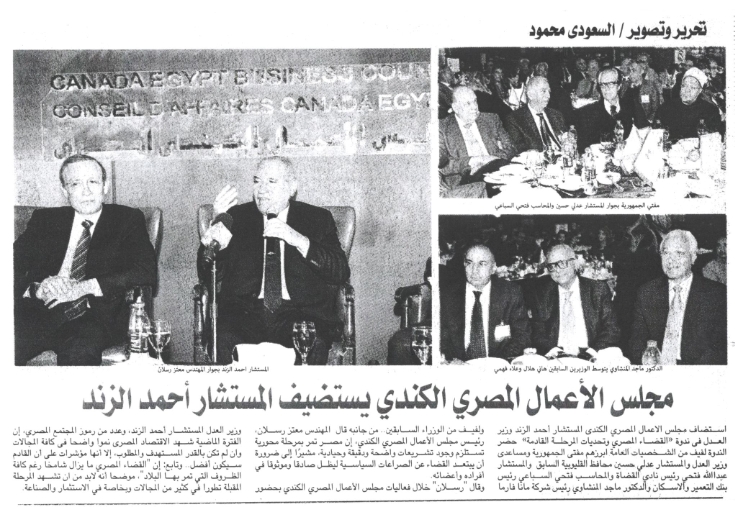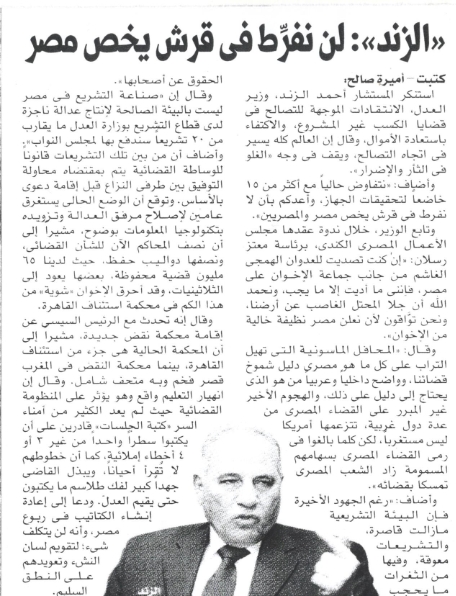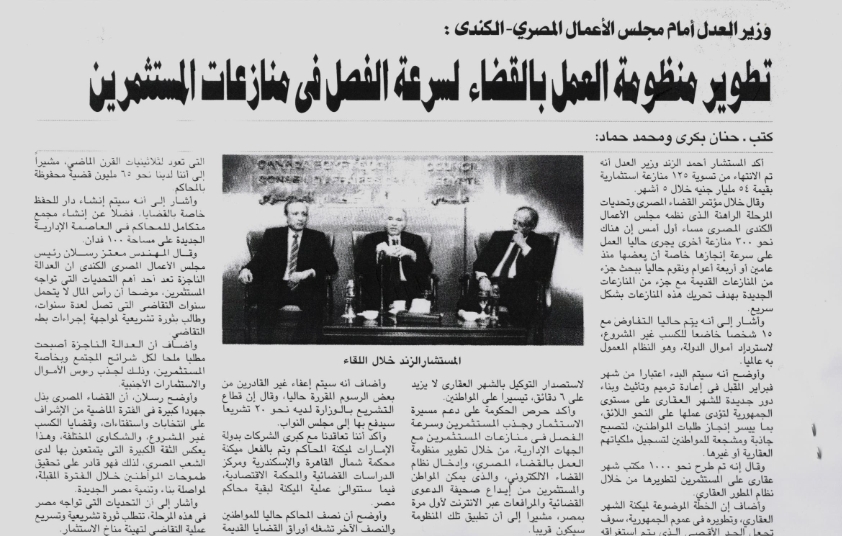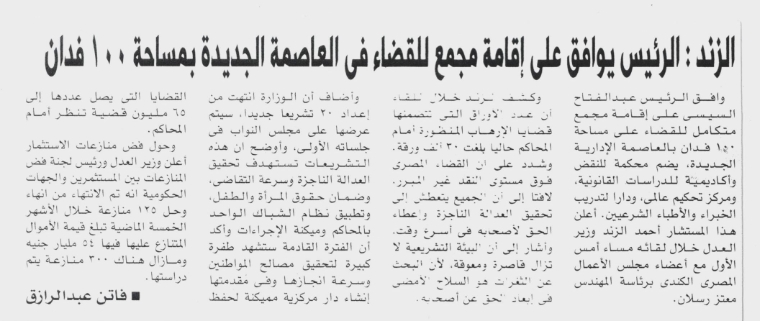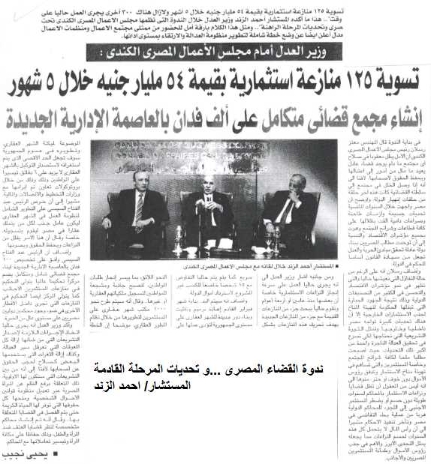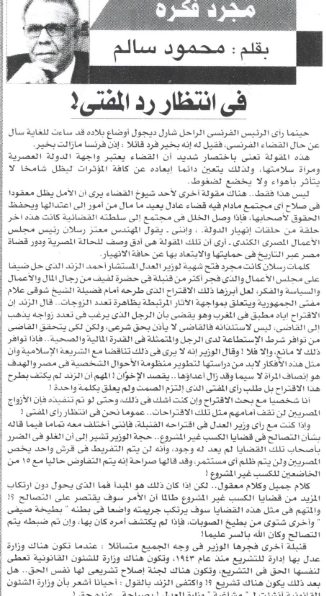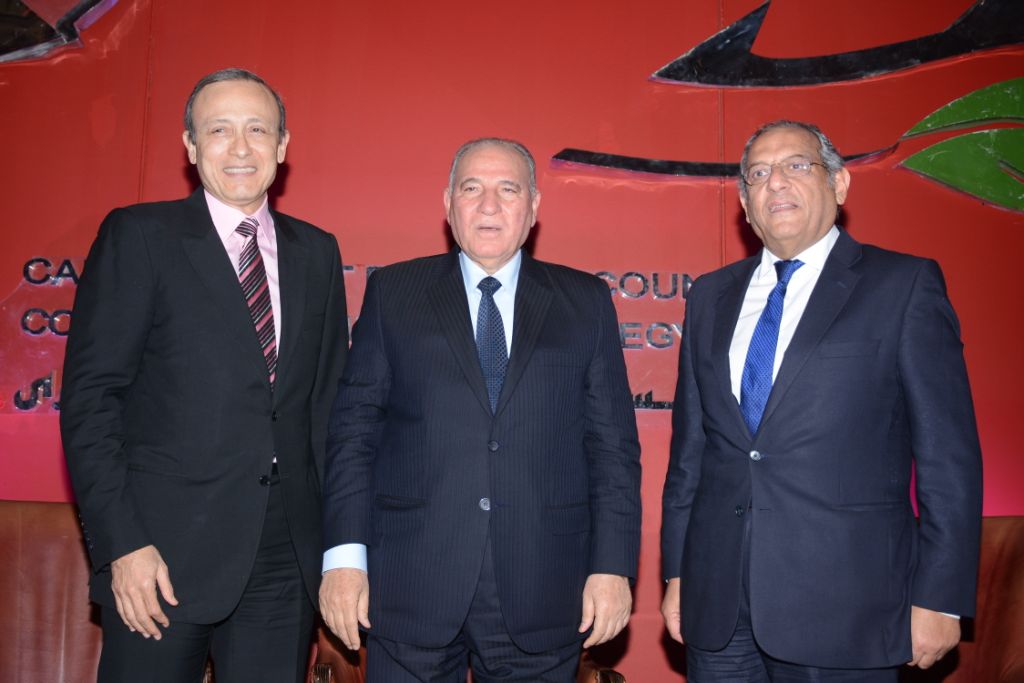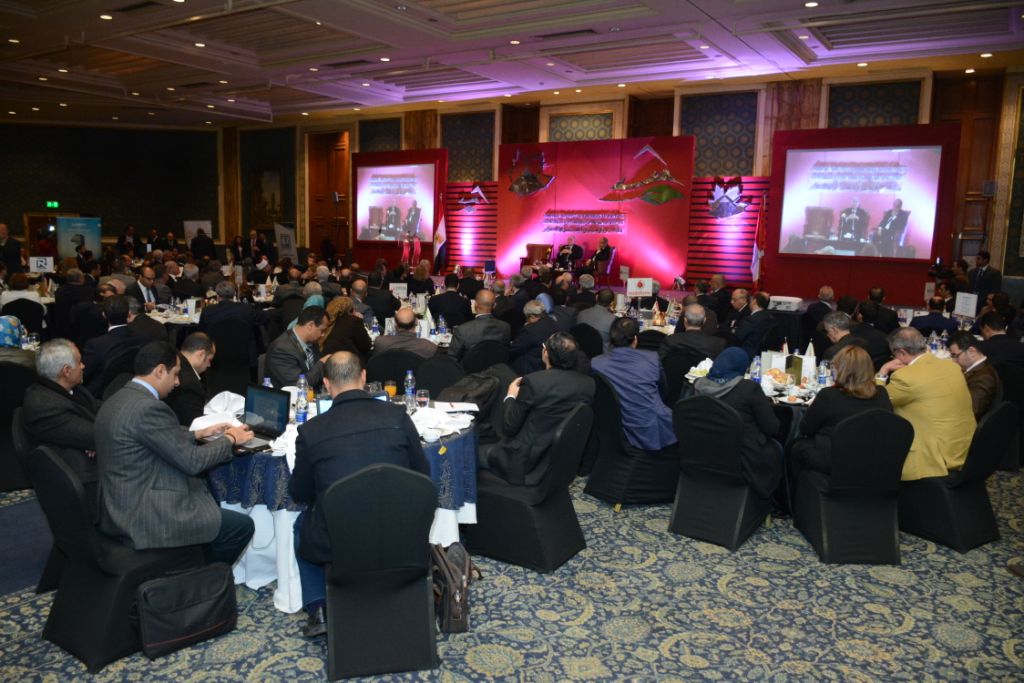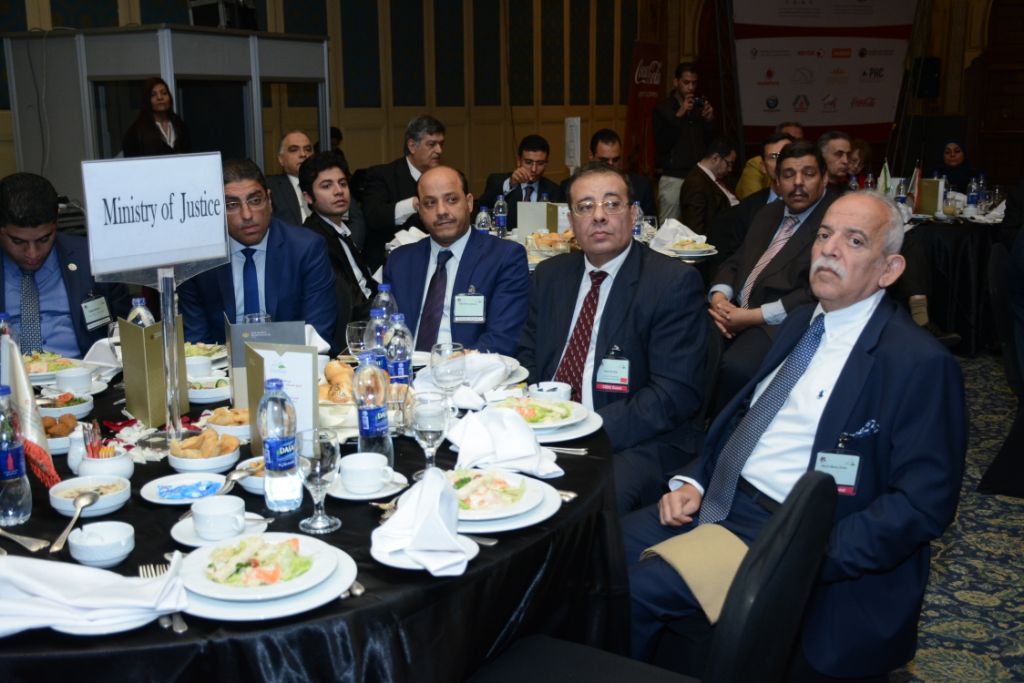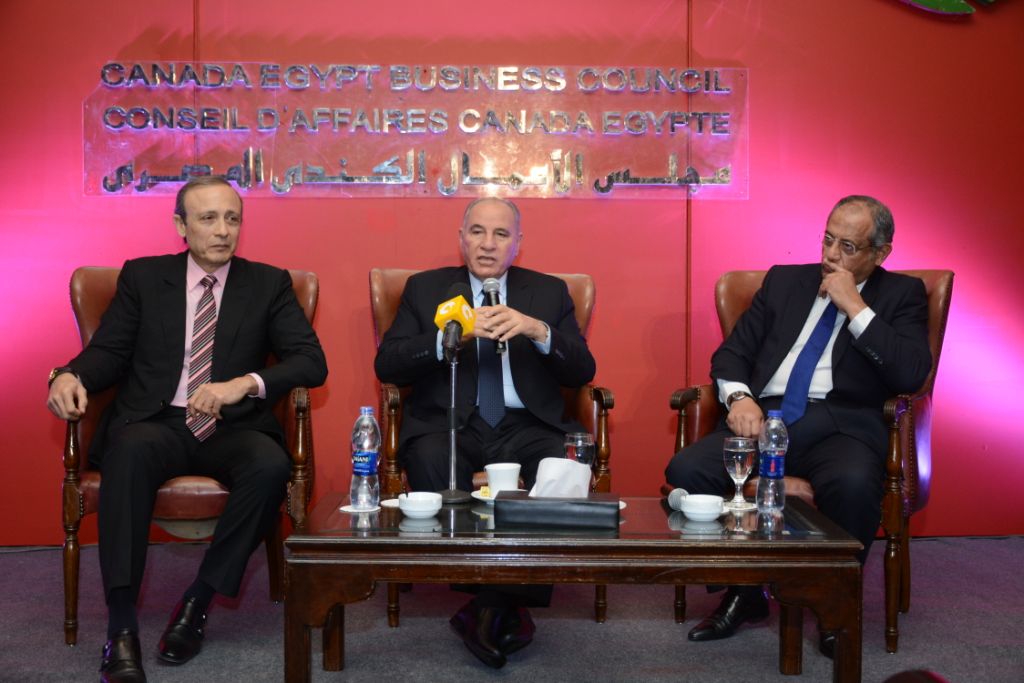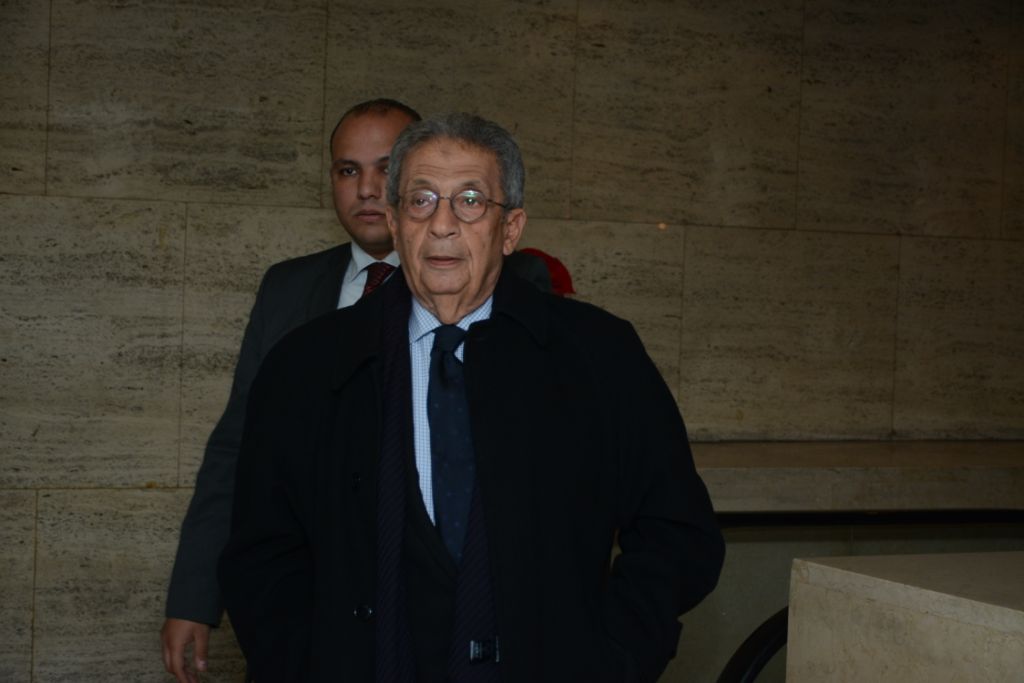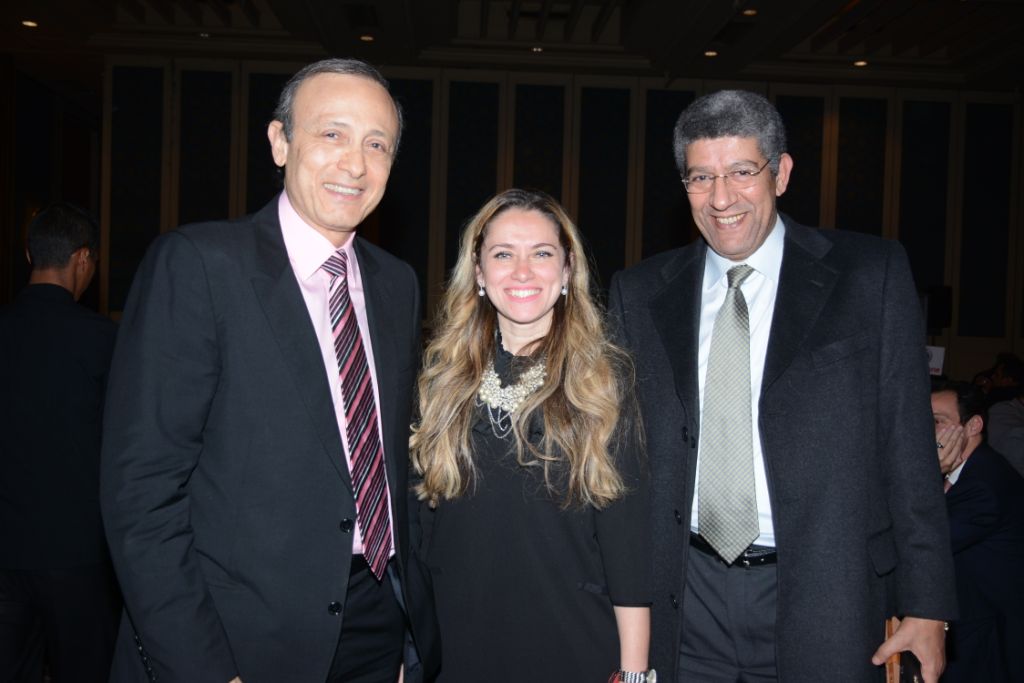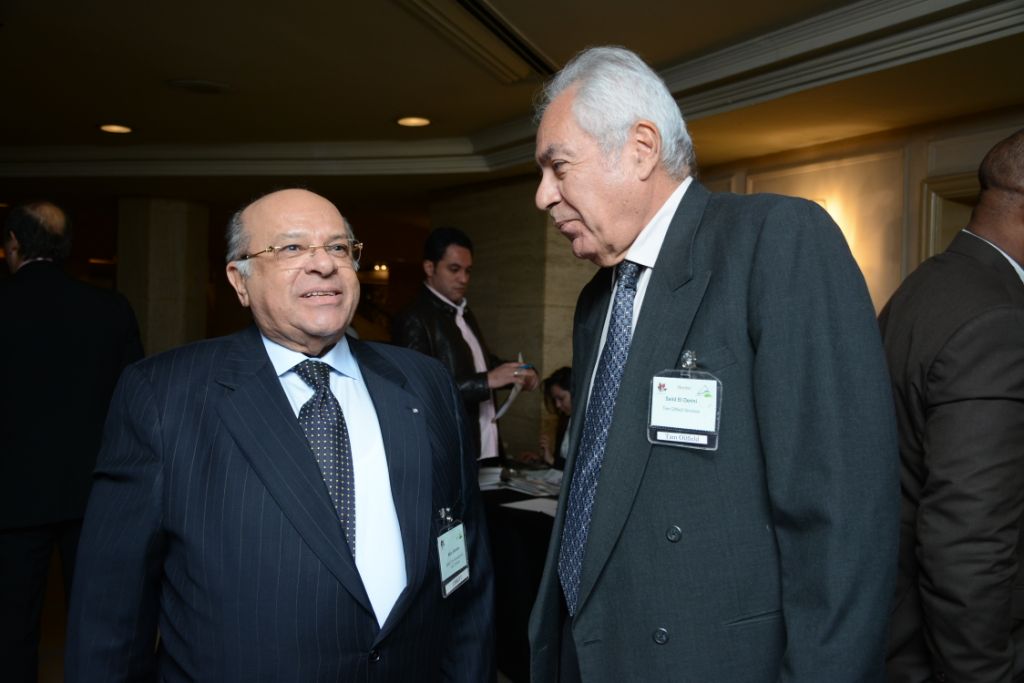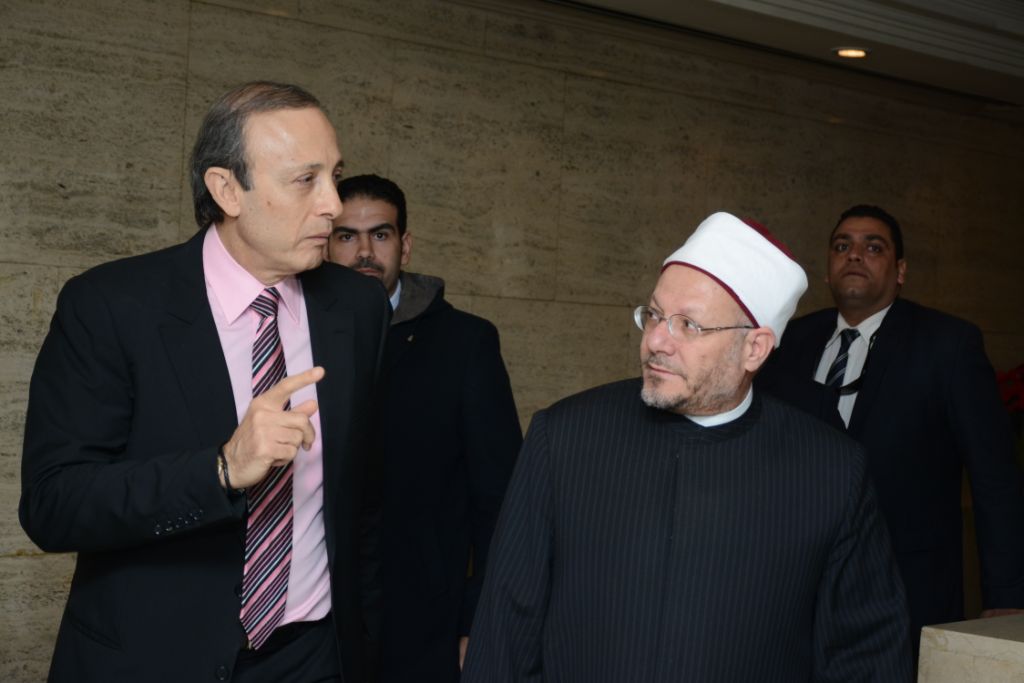
Date
Speaker(s)
Designation
Description
To address the current state of the Egyptian judiciary sector and its challenges, the Canada Egypt Business Council (CEBC) and the Egyptian Council for Sustainable Development (ECSD) hosted an event featuring H.E. Cons. Ahmed El Zind Minister of Justice and Mr. Emad El Shalakany, senior partner of Shalakany Law Office.
Previous ministers and senior officials attended the event. They included H.E. Dr. Shawky Allam the Grand Mufti, Amre Moussa, Dr. Hany Helal, Dr. Mohamed El Oraby, Dr. Ali Moselhy, Dr. Amr Ezzat Salama, H.E. Mushira Khattab, and Adly Hussein. Ambassadors of Albania, Estonia, Pakistan, Belarus, the Netherlands, Singapore, as well as the Canadian Ambassador to Egypt Troy Lulashnyk were also in attendance. They were joined by CEBC and ECSD’s esteemed members, guests, businessmen and reporters.
In his opening remarks Eng. Motaz Raslan highlighted the importance of a healthy judiciary system on a country’s citizens as well as Egypt’s economy as a whole. Minister El Zind assumed the floor and started out by noting the exceptional circumstances that the Egyptian judicial system has been in as of late. He highlighted that for the past years that it has undertaken great challenges than any other judiciary around the world in the forms of multiple elections, referendums, and many high profile cases of profiteering.
The minister expressed the need for a “judicial renaissance” in order to meet the principles of the new constitution and the ambitions of Egyptians. He also revealed that the ministry of justice is preparing close to twentylegislations that are set to be proposed for approval by the newly elected members of the House of Representatives. Among the key legislations to be presented are ones regarding inheritance laws, aimed to end the injustices that currently take place against women where their inheritance rights are often withheld from them.
Pointing to the fact that the personal affairs sectoris in dire need of attention and improvement, he announced that there would be a creation of special courts to address violence committed against women and children. These special courts would aim to facilitate the resolution of these critical cases. El Zind also announced the establishment of twelve new primary courts to help ease the load off current courts that are overwhelmed with new cases each year.
El Zind pointed to the many challenges facing the judicial system in the country and proposals by the ministry to combat them. One of these challenges is stagnation of cases in the judicial system. He explained that judges’ hands are tied since this phenomenon is due to archaic laws that still exist in the system. Another reason is the lack of technological use to aid the judges. El Zind claimed that in some cases such as anti-terrorism cases, documents exceed thirty thousand pages. With complete reliance on human resources, cases undoubtedly take much longer to proceed than it should. However there is a deal underway with Emirati companies to introduce technological aids in the courtrooms and already courtrooms such as the North Cairo courtroom and the Alexandria courtroom are utilizing them as a pilot before this technology is introduced nationwide.
Another institution that Minister El Zind notably addressed was the undergoing improvement and modernization plans for the Notary Public. Talking about its current state, the minister lamented about the poor conditions of notary public offices throughout Egypt. He expressed that tens of millions of pounds are wasted from the government’s revenue because citizens have no desire to go the notary public to register their real estate properties.
A cooperation protocol has been set up with the ministry of telecommunications, the ministry of finance, and the ministry of planning in order to improve the notary public and entice citizens to register owned real estate. The protocol is set to increase the number of notary public offices throughout Egypt to include many governorates and even in populous villages in order to serve more citizens. Besides new infrastructure and technological aids to be present at new offices, public notary personnel are being trained and about a thousand masters degree and PHD holders have been hired to complete the overhaul of this ailing institution.
El Zind highlighted in his talk a major challenge in the judiciary, which is the many lawsuits filed by foreign investors in Egypt. Often taking years to reach a verdict in Egypt, many investors resort to international courts. He noted that cases like these need expedient resolutions and should not take years to be resolved. He said that a committee from the ministry of justice has been aiding in arbitration to find settlement for these cases. He revealed that about 125 cases with disputes revolving around them worth 54 EGP billion were settled with 300 cases still pending.
The floor was then opened for a questions session where a wide range of vital topics were raised such as how to modernize the judicial system and protect foreign investors rights by the law.


